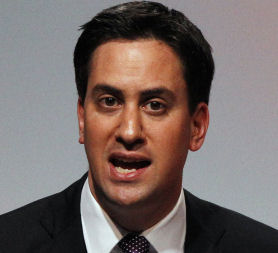Ed Miliband: Labour ‘have got to change’
Labour Leader Ed Miliband today announced a full review of his party’s policies, saying that they needed to move “beyond New Labour” in the wake of their general election defeat.
In a speech to Labour’s National Policy Forum in Gillingham this morning, Mr Miliband said Labour had “lost its way”. He set out a two-year review into the party’s policies, headed by Cabinet Office Minister Liam Byrne, which will include a series of working groups chaired by shadow cabinet ministers and drawing from external experts.
The review echoes one carried out by David Cameron when he took over the Conservative Party leadership in 2005.
Mr Miliband said: “We have to show again we are the people who are the idealists, we are the people who are the optimists, we are the people who can represent the hopes, the dreams, the aspirations of the British people.”
He said that although there was a lot of anger at the coalition government’s “broken promises”, but added: “The strategy that says wait for them to screw it up, simply be a strong opposition, is not a strategy that is going to work for us. We need to do that hard thinking of our own.”

He indicated that he would be willing to reform the Labour leadership election process, saying that the system where members can have more than one vote should be a “thing of the past”.
And he said he would continue to stand up for the “squeezed” middle.
“People were feeling squeezed before this Government. They are feeling much, much more squeezed now this government is in power,” he said.
“So it is about standing up for the hopes and aspirations of people. That must be our mission, to narrow the gap between the dreams that people can see around them and their chances of realising them.”
The review into Labour’s policy will form the building blocks of their next general election manifesto. The working groups will feed into a report for next year’s annual conference and will then give a second follow-up report to the 2012 conference.
The working groups
Economy: two groups chaired by shadow Chancellor Alan Johnson and shadow Business Secretary John Denham.
Public Services: a series of groups chaired by shadow Health Secretary John Healey, shadow Education Secretary Andy Burnham, shadow Home Secretary Ed Balls and shadow Justice Secretary Sadiq Khan.
Role of families and carers: groups chaired by shadow Work and Pensions Secretary Douglas Alexander, shadow Communities Secretary Caroline Flint and shadow Olympics minister Tessa Jowell.
Political reform: headed by shadow Leader of the Commons Hilary Benn and shadow Leader of the Lords Baroness Royall of Blaisdon
Security issues: led by shadow Foreign Secretary Yvette Cooper and shadow Defence Secretary Jim Murphy
Other groups: volunteering, isolation and loneliness in modern Britain, living on low pay, and what it is like to be a victim of crime.